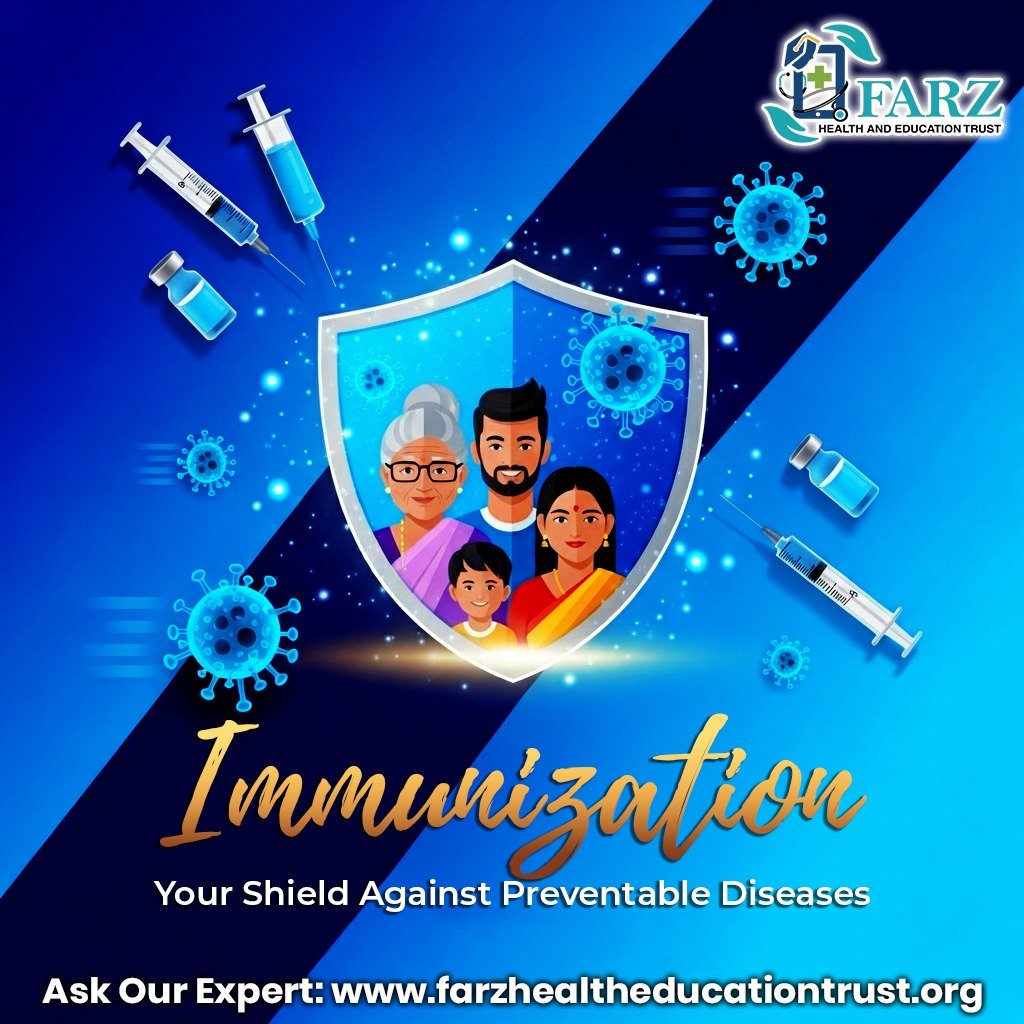
Picture this: It’s 2025 and you’re packing for a long-awaited family trip abroad. Midway through the checklist you pause — you remember the stories of polio, measles, and whooping cough from your grandparents. Then you smile: those vaccines you received long ago have built a quiet, powerful defense. That’s exactly what immunization does — it turns individual protection into community resilience.
In an interconnected world where a plane can carry you halfway across the globe in a few hours, understanding immunization isn’t just smart — it’s essential. Below is an accessible, human-sounding guide that explains why vaccines matter, who needs which shots, and how you can help keep your family and community safe.
What makes immunization your ultimate health defense?
Immunization trains your immune system to recognize dangerous pathogens without making you suffer the full disease. Think of it like showing the body a “mugshot” of the enemy: when the real pathogen shows up, your body recognizes it and fights back quickly. According to global health agencies, vaccines prevent millions of deaths each year — a clear sign of their life-saving value.
The science in simple terms
When a vaccine introduces a harmless component of a germ, your immune system builds memory cells and antibodies. If later exposed to the real infection, your body responds faster and more effectively. This training is why immunization remains one of the most efficient tools in modern medicine.
Why 2025 makes immunization more critical than ever
Several modern trends make vaccines indispensable today:
- Global travel increases the speed at which infections can cross borders.
- Urbanization and crowding amplify transmission risk.
- Climate change and ecological shifts can expand the range of vector-borne diseases.
All these factors underscore why immunization is not only a personal health choice but also a public-duty strategy.
Essential vaccines across the lifespan
Immunization needs change with age — it’s not just for children.
Childhood (foundation vaccines)
Early-life immunizations protect against high-risk illnesses and build long-term community protection:
- BCG (tuberculosis)
- DPT (diphtheria, pertussis, tetanus)
- Polio
- Hepatitis B
- MMR (measles, mumps, rubella)
- Rotavirus
Adolescents & adults (boosters & new protections)
- HPV (reduces cervical cancer risk)
- Tdap boosters (every 10 years)
- Annual influenza vaccine
- COVID-19 boosters as recommended
Seniors & special populations
- Pneumococcal vaccines
- Shingles (zoster) vaccine
- Tailored schedules for immunocompromised people and pregnant women
Because immunity wanes and risks change over time, immunization across the lifetime keeps communities healthier.
How immunization prevents outbreaks and saves money
Three ways vaccines stop outbreaks
- Cut transmission chains — fewer susceptible people means less spread.
- Reduce severity — when vaccinated people get infected, they typically have milder illness.
- Limit mutation opportunities — fewer cases = fewer chances for dangerous variants to emerge.
The economic case
Treating preventable illness can be costly — hospital bills, lost wages, and long-term care add up. Investing in immunization saves direct medical costs and preserves productivity, making vaccines one of the highest-return public-health investments.
Debunking common myths (facts, not fear)
- “Natural immunity is better.” Natural infections carry real risks — measles can cause brain damage, hepatitis can lead to liver cancer. Vaccines offer protection with vastly lower risk.
- “Too many vaccines overwhelm the immune system.” The immune system encounters thousands of antigens daily; vaccines add a tiny, manageable fraction.
- “Vaccines cause chronic conditions like autism.” Extensive, well-conducted studies have found no causal link.
Transparent, empathetic communication from health professionals helps people understand why immunization matters and rebuilds trust.
Travel, work, and community—where immunization really shows impact
Travelers should check destination-specific recommendations well before departure: some vaccines need weeks to become fully effective. Healthcare workers, teachers, and caregivers should keep up-to-date immunizations to protect both themselves and vulnerable people they serve. When individuals act responsibly, they contribute to the protective web that is immunization in practice.
Side effects and safety — what to expect
Most vaccine reactions are mild and short-lived: soreness, low-grade fever, or tiredness. Serious adverse events are rare and monitored continuously by national and international vaccine safety systems. The benefits of immunization — lives saved and severe illness prevented — far outweigh the risks for approved vaccines.
The future: innovations strengthening immunization
Emerging technologies are expanding vaccine reach and effectiveness:
- mRNA platforms that speed vaccine development
- Needle-free delivery systems for better acceptance
- Thermostable formulations improving cold-chain resilience
- Digital registries for tracking coverage and targeting outreach
These advances make it easier for health systems to ensure immunization reaches remote and vulnerable populations.
Practical steps you can take today
- Check your family’s vaccination records and fill gaps.
- Consult a trusted healthcare provider for age-specific recommendations.
- Plan travel vaccines at least 2–4 weeks before departure.
- Share reliable information from credible sources to help your community decide wisely.
Small actions — like one routine booster — are powerful contributions to public health and demonstrate why immunization matters.
Conclusion: Make immunization your family’s shield
Immunization has turned once-deadly infections into preventable events. In 2025, the science is stronger and the stakes are higher — so decisions about vaccinations matter more than ever. When you choose vaccines for yourself and your loved ones, you’re creating layers of protection that safeguard entire communities.
Take the next step: review your immunization records, consult your healthcare provider, and schedule any due vaccines. Prevention is powerful — and immunization is the shield we all share.
